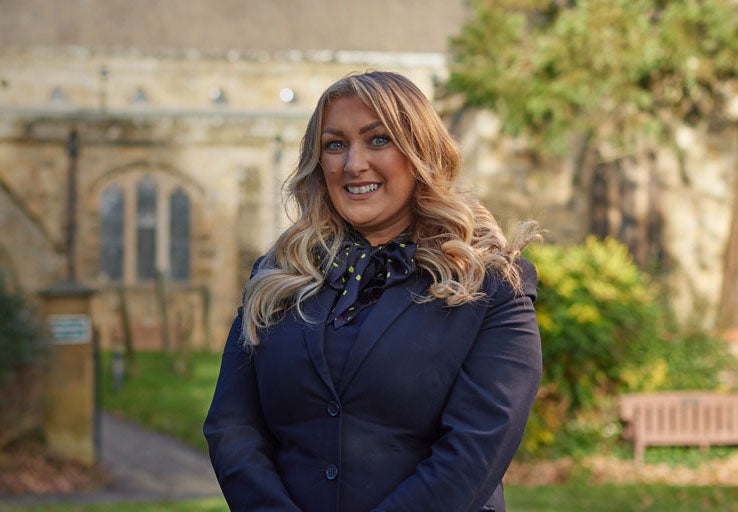If you’re looking to save but not sure where to start, it’s a good idea to think about your saving habits. These tips could work for anyone looking to build a more secure financial future but are designed to suit a younger lifestyle and help Gen Z kickstart their savings.
Our savings tips for Gen Z
Ben Smith, our Head of Commercial and Product Development, shares his top savings tips and healthy savings habits.
Create a realistic savings goal

The first step to successful saving is to set a clear, achievable goal alongside a realistic budget. Start by identifying your goal, whether it's a rainy-day fund or saving for a holiday, and break it into smaller, more manageable targets. Review your monthly income and essential expenses like rent, bills and groceries. Then, pinpoint areas to cut back, such as reducing takeaways or scaling back on impulse buys. Even saving an extra £10–£20 each month can add up over time, helping you reach your goal without feeling overwhelmed.
Automate your savings
Automating your savings is a simple yet powerful way to build financial security. Set up a standing order or direct transfer from your current account to your savings account on payday.
Increasing your savings gradually can also make a big difference. Adding a little more each month, could make a big impact at the end of the year. This hands-off approach not only builds discipline but also helps you stay consistent, ensuring your financial goals are always on track.
Pick the right savings account for your goals
Choosing the correct savings account is a crucial step in managing your finances effectively. The account you choose should align with your savings goals and when you might need access to your money.
Easy Access
Ideal if you need flexibility, though interest rates can change at any time. On a £1,000 balance at a 3% interest rate, you’d earn £30 annually.
Fixed Rate
May mean higher earnings if you’re comfortable with limited or no access for a set period. For example, with a 4.5% interest rate on £1,000, you’d earn £45 annually.
Regular Saver
Reward monthly savings with competitive interest rates. These accounts often have a maximum monthly deposit limit but are excellent for building consistent saving habits while still providing access to your funds when needed.
The rates and projections in the examples are illustrative and don’t take account personal circumstances or rates currently available.
Appreciate the ‘magic’ of compound interest

Compound interest helps your money grow faster over time. It works by earning interest, not only on your initial deposit, but also on the interest you earn. For example, saving £1,000 at a 5% annual interest rate will earn you £50 in the first year. By the second year, you're earning interest on £1,050, growing your savings faster. Starting early is important. Whether you're saving for emergencies or future goals, compound interest could help you reach them more easily.
Use credit reporting to prioritise and pay off debts
Managing debt is crucial for maintaining good financial health. Using credit reporting apps like ClearScore, Experian, and Credit Karma lets you see your credit score and track your debts in one place. This can help you understand exactly how much you owe and which debts are costing you the most in interest.
Focus on paying off high-interest debts first, like credit cards, as they accumulate interest faster than others. This method, known as the avalanche approach, can save you money by reducing the amount of interest you pay.
Streamline your subscriptions
Subscriptions can add up quickly, especially when you forget about services you're not using regularly. Start by going through all your streaming services, fitness apps, or online memberships and consider cancelling or downgrading those you rarely use.

You can also pause some subscriptions during months when you don't need them or share family plans with friends to cut costs. Tracking your subscriptions in a budgeting app can also help you stay on top of recurring payments. Small adjustments like these add up over time, so cutting back on unnecessary subscriptions could give your savings a solid boost.
Set yourself a ‘no spend’ challenge
A challenge is a great way to kickstart your savings and break any impulse spending habits. Choose a specific period (like a week or a month) where you commit to not spending money on non-essential items. This means cutting out things like takeaways, online shopping, or nights out.
Doing a no spend challenge encourages you to become more mindful of your habits and makes you think twice before making purchases. Plus, it's an easy way to create some breathing room in your budget, especially when money feels tight. You might even discover new, inexpensive ways to have fun, like hosting a film night at home instead of going out, all while boosting your savings.
Save noisily
Also known as ‘loud budgeting’, means being open about your financial goals with those around you. Sharing your progress with friends and family can create a supportive environment that keeps you accountable. By talking about your goals, you might even inspire others to do the same.
It's also important to be honest about what you can and can't afford. Saying 'no' to expensive activities or outings that don't fit within your budget helps you stay focused on your long-term goals. You'll find that the more open you are about your finances, the less pressure you'll feel to keep up with others, and the more control you'll have over your money.

Take control of your financial future

What kind of saver are you?
Everyone has their own approach to saving. Some plan ahead, others juggle the day-to-day and some enjoy treating themselves. Take our short quiz to see what your savings personality says about you and how we could support you with your next steps.




